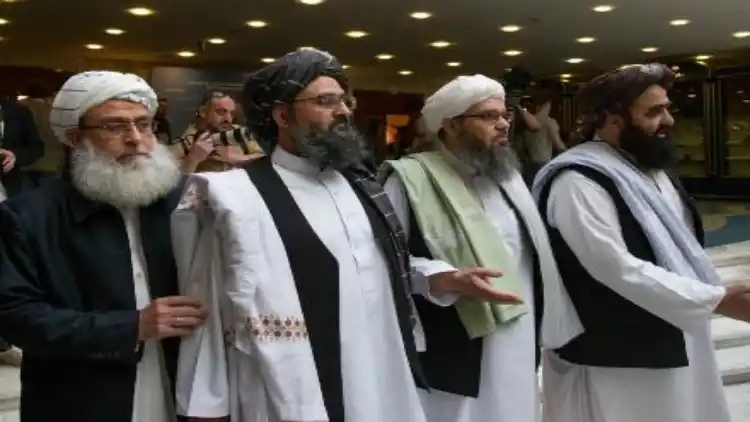
Dr Shehnaz Ganai
Today is the 9/11. It is the 20th anniversary of the terrorist attacks on the Twin Towers in New York. After this attack, the United States, along with its allies, invaded Afghanistan in search of its chief planner, Osama bin Laden leader of the Al-Qaeda, and the Taliban regime was overthrown.
20 years later around this day, the Taliban's new interim government is set to be sworn in. Mullah Muhammad Hassan Akhund will be the Prime Minister of the Islamic Emirate of Afghanistan while Mullah Abdul Ghani Baradar and Mullah Abdul Salam will be the Deputy Prime Ministers.
The Taliban have formally invited six countries, Pakistan, China, Turkey, Iran, Qatar and Russia to attend the swearing-in ceremony of the new government.
The Taliban leaders are showing flexibility in their attitudes in comparison with their previous regime. The group is indicating that they are no longer having the hardline view of 1996, when they had established a government through violence and their ideology was based on extreme religious bigotry.
It seems that the Taliban have changed their behaviour and they are trying to show to the world that they do accept the present situation in order to adapt to the modern world.
The Taliban who are actively involved in extremism, beating journalists and demonstrating women, have promised that they will move forward towards enlightenment.
In spite of that, many countries still doubt, the ban on pre-swearing-in demonstrations have raised serious concerns. The interim government announced by the Taliban is dominated by the alleged terrorist group Haqqani Network and the Kandahar-based Taliban group, while the Doha-based Taliban group have been ignored, which has held international peace talks .
Talks are currently on the sidelines. Wait and watch policy is being applied from the West, Europe, Middle East and the South East Asian countries including India. The United Nations has raised the issue with Taliban that women must be included in the government and a ministry for women and children welfare must be formed.
It is being said that the change in behaviour of the Taliban is a tactical move, they want to be recognised by the international communities. This time they don't want Afghanistan to be a pariah state. They don't want the international financial institutions imposed sanctions on their government.
However, it is also a fact that Muhammad Hassan Akhund, who was made prime minister in the current Taliban interim government, is accused of destroying the Bamiyan statues of Gautam Buddha in 2001 and is on the UN designated terrorist list. Similarly, Interior Minister Sirajuddin is the head of the Haqqani Network, which is listed as a global terrorist. Sirajuddin Haqqani is said to be responsible for the 2008 attack on the Indian embassy in Kabul and has very deep ties with the Pakistan's ISI.
It has been announced that the Islamic Emirate of Afghanistan will be governed under strict Islamic Sharia law. What type of constitution and the government a country is going to adopt is totally its prerogative? It is up to the people of that country to decide who would govern them, whether the gun will rule over them or whether it will be the rule of law and the constitution.
Many countries in the world have Islamic conservative rules and they are not only recognized by the world but also have diplomatic and trade relations with them. There are more than a dozen countries including Saudi Arabia, Qatar, Iran, Iraq, Malaysia, the Maldives, Nigeria, Sudan, the United Arab Emirates and Yemen where Islamic law is in force,.
People from all over the world not only visit these countries but also do business with them.
However, the many countries including India, are worried about Afghanistan because of its ultra radicalism, extremism, narrow-mindedness, religious bigotry etc. These elements can become the root cause of future conflicts and war in the world.
(The author is a former Legislator from Jammu and Kashmir. Views expressed are personal)
